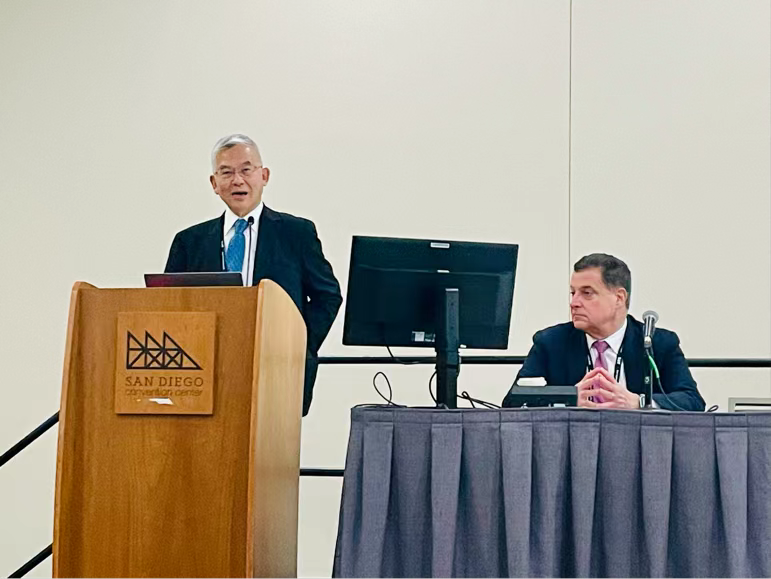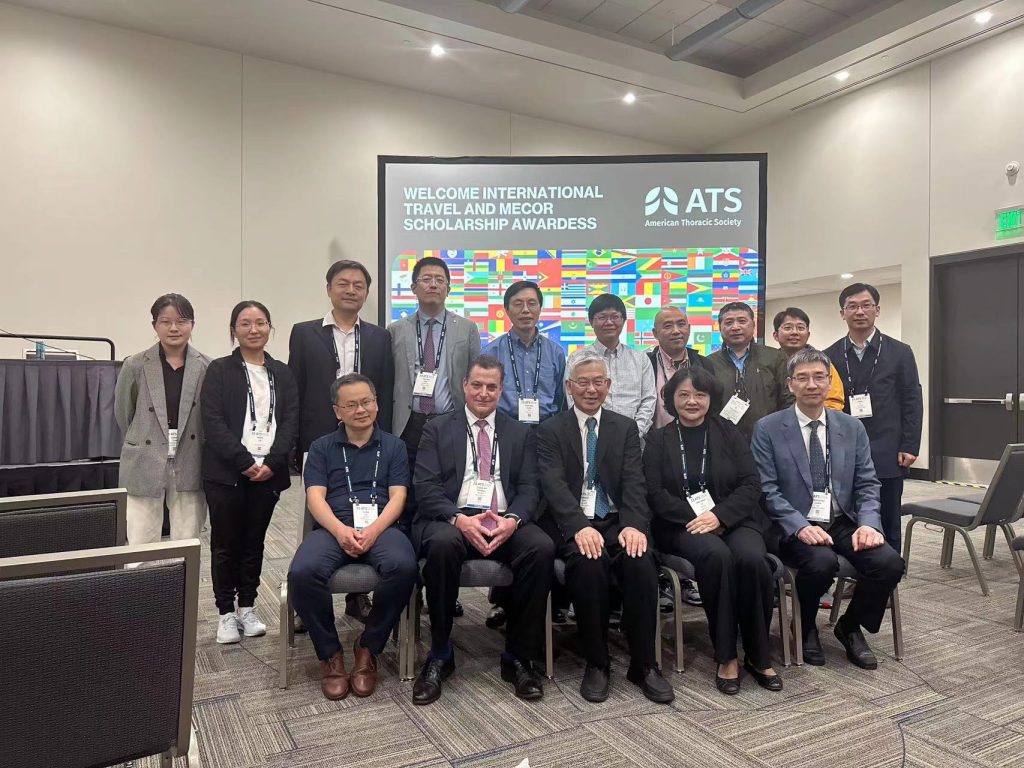The American Thoracic Society (ATS) conference took place on May 18, 2024, at the San Diego Convention Center. The ATS conference serves as a significant platform for global respiratory, critical care, and sleep medicine professionals and researchers to exchange academic insights and foster collaborations. Prior to the opening ceremony, the International Society of Respiratory Diseases (ISRD) held a specialized session aimed at promoting innovation, collaboration, and advancement in the field of respiratory medicine. Since 2011, Professor Chunxue Bai, in collaboration with ATS, has established the ISRD Special Session Meeting to support young physicians’ international engagement, granting awards to 20 young physicians or researchers annually.
This year’s ISRD Session at ATS attracted experts from around the world to explore cutting-edge research and emerging trends in respiratory health. Discussions spanned various fields, including the potential of the metaverse in medical practice, breakthroughs and advancements in ARDS by Chinese scholars, and multi-omics prediction of immune-related adverse events. Experts from China and the United States provided valuable insights, sparking lively discussions among participants and providing opportunities for academic exchange and collaboration.

Speakers delivered captivating presentations. Professor Chunxue Bai eloquently discussed the application of the metaverse in medicine, highlighting experiences in using human-machine MDT diagnosis to help identify malignant nodules and prevent overtreatment. He showcased the significant potential of artificial intelligence in the early diagnosis and treatment of lung cancer. Additionally, Professor Bai introduced the basic structure of the metaverse and its application framework in medicine, demonstrating the team’s completion of digital human GPT cases and emphasizing the future potential of the metaverse in various medical fields.
Next, Professor Charles A. Powell from Mount Sinai Hospital in New York delivered a fascinating presentation on the application of respiratory innovation in US medical practice. Professor Powell shared applications of artificial intelligence-assisted radiologist diagnosis and the role of ventilator monitoring devices in managing critically ill patients. These devices can assess whether patients are in an appropriate ventilation state based on their BMI and promptly alert to abnormal ventilation, leading to significant improvements in patient prognosis. Additionally, Professor Powell introduced the use of remote devices for COPD patients, assisting doctors in monitoring individual heart rate, oxygen saturation, and activity levels to grasp patients’ rehabilitation progress.

Subsequently, Professor Yuanlin Song reported on important research in the field of acute respiratory distress syndrome (ARDS) in China in recent years, covering progress in both basic and clinical research. This includes frontier research on early diagnosis biomarkers of ARDS, the impact of EPO on ion channel transport, progress on new drug targets such as circular RNA and FGF21, and the inhibitory effect of acetylcholine receptors on SARS-CoV-2 replication. Clinical research includes progress in longitudinal phenotypic typing of ARDS, exploration of pre-hospital aspirin, early heparin, low-dose corticosteroid usage, and new perspectives on non-drug and stem cell therapies. Professor Song emphasized China’s breakthroughs in this field and called for more Sino-American cooperation to promote early intervention and treatment of ARDS.
Finally, prize-winners of the ATS International Travel Award presented their research, and Professor Bai and Professor Powell jointly awarded them, encouraging young Chinese scholars to continue showcasing their research achievements on the international stage. The lectures covered several significant findings, including the regulation of macrophage antifungal immunity by the Scap-CKM2 axis-mediated glycolysis reshaping, multi-omic prediction of adverse events during immunotherapy, and the role of hyaluronic acid in predicting SARS-CoV-2 Omicron infection mortality.
This collaborative meeting not only showcased important research achievements in the respiratory field but also encouraged international cooperation and knowledge sharing to address the growing demands in respiratory medicine. ISRD and ATS will continue to deepen their collaboration, striving for the development of respiratory medicine in China and worldwide. The ATS annual meeting will be held in beautiful San Francisco next May, where ISRD will establish the “International Innovation” special session. We welcome colleagues and young scholars to submit their contributions early for the chance to win awards.
(Reported by Yinzhou Feng and Yuanlin Song)
